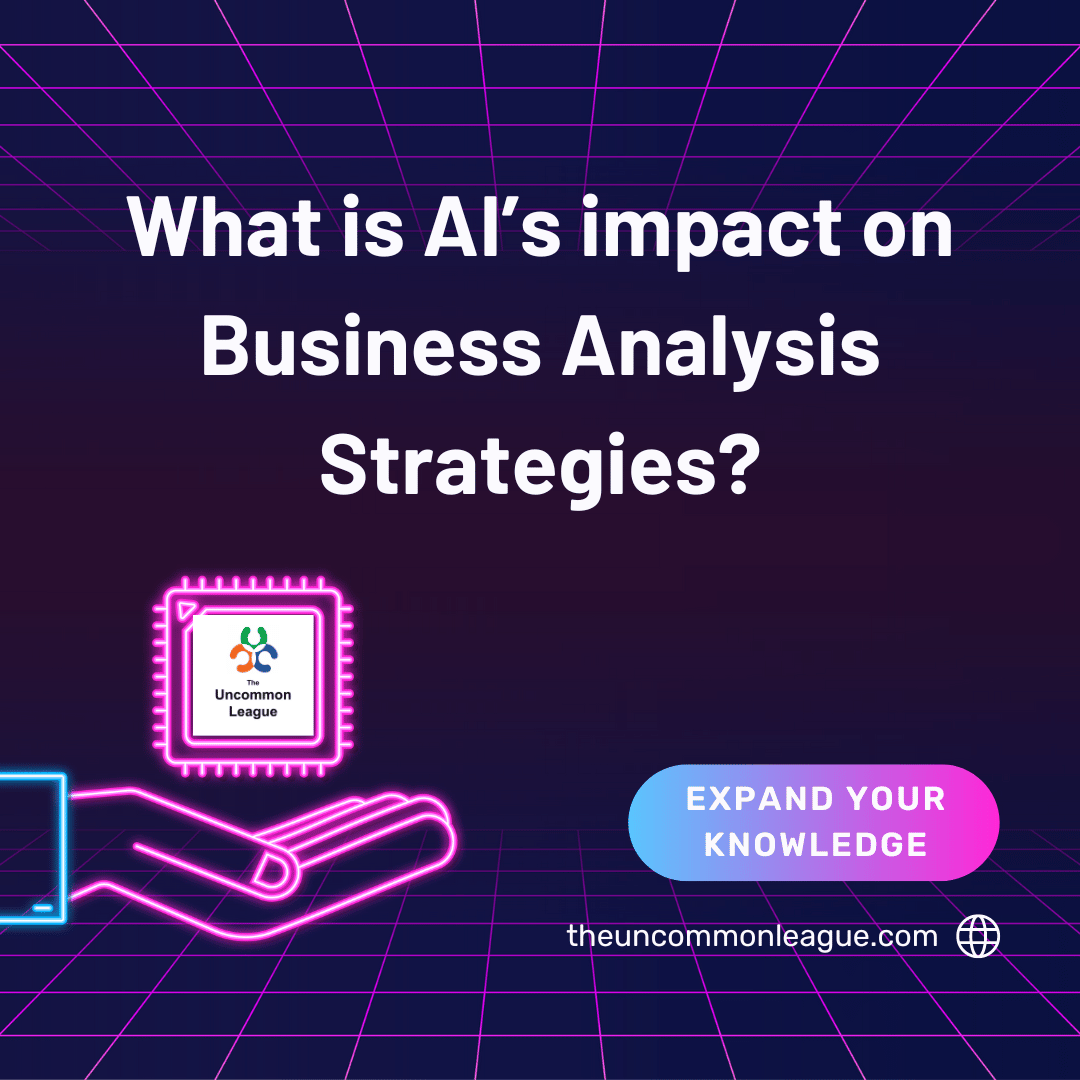What is AI’s impact on Business Analysis Strategies?
Artificial Intelligence (AI) is no longer a futuristic notion but a present-day reality, profoundly impacting various facets of business operations, including the pivotal domain of business analysis. As businesses navigate the complexities of the digital age, AI emerges as a transformative force, redefining traditional strategies and practices in business analysis. This article delves into the multifaceted impact of AI on business analysis strategies, highlighting how current trends are shaping a new paradigm in the way businesses harness data, derive insights, and make strategic decisions.
Transforming Data into Strategic Insights
At the heart of business analysis lies the critical task of transforming data into actionable insights. AI, with its advanced algorithms and machine learning capabilities, has revolutionized this process. Traditional analytical methods, often limited by human bandwidth and bias, are now augmented by AI's ability to process vast datasets at unprecedented speeds. This capacity not only enhances efficiency but also uncovers patterns and correlations that might elude human analysts. Consequently, businesses are now equipped with deeper, more nuanced insights, driving more informed strategic decisions.
Predictive Analytics: Shaping Future Strategies
One of the most significant impacts of AI on business analysis is the advent of predictive analytics. AI systems can sift through historical data, identify trends, and use these insights to forecast future outcomes. This predictive power is invaluable across various business functions, from inventory management to demand forecasting and customer behavior prediction. Businesses can now anticipate market changes, adapt strategies proactively, and maintain a competitive edge in rapidly evolving markets.
Personalization at Scale
In today's customer-centric business landscape, personalization is key to customer engagement and retention. AI's ability to analyze customer data, understand preferences, and predict behavior patterns has opened new avenues for personalization at scale. Business analysts leverage these insights to devise tailored marketing strategies, product recommendations, and customer experiences. This personalized approach not only enhances customer satisfaction but also drives loyalty and long-term value.
Real-time Business Intelligence
The dynamic nature of today's business environment demands real-time intelligence to respond swiftly to emerging opportunities and threats. AI empowers business analysts with real-time analytics, providing up-to-the-minute insights into market trends, operational performance, and customer feedback. This immediate access to information enables agile decision-making, allowing businesses to adapt quickly and maintain a competitive stance.
Automating Routine Analytical Tasks
AI's impact extends to automating routine and repetitive tasks in business analysis, such as data cleaning, report generation, and basic data analysis. This automation frees up analysts to focus on more complex, strategic aspects of their role. By reducing the time spent on mundane tasks, AI not only boosts productivity but also allows analysts to engage in deeper, more creative problem-solving activities.
Driving Innovation and New Business Models
AI is not just optimizing existing business strategies; it's also a catalyst for innovation. By providing insights into market gaps, customer needs, and emerging trends, AI enables business analysts to identify opportunities for new products, services, and business models. This innovative capability is particularly evident in the rise of AI-driven services and products, from intelligent virtual assistants to personalized healthcare solutions.
Ethical Considerations and Responsible AI
April 15 - 17, 2024 (3 Days)
9:00 am (Central) until 5:00pm (Central)
Online - Live Instructor
As AI becomes more integrated into business analysis strategies, ethical considerations come to the forefront. Issues such as data privacy, algorithmic bias, and transparency are critical concerns. Business analysts play a crucial role in advocating for responsible AI use, ensuring that AI-driven strategies are ethical, fair, and transparent. This commitment to ethical AI not only safeguards against reputational risks but also builds trust with customers and stakeholders.
Navigating the Talent Gap
The sophisticated nature of AI-driven business analysis requires a new set of skills and competencies. The current talent gap in AI and data science poses a challenge but also an opportunity for businesses to invest in training and development. By upskilling analysts and fostering a culture of continuous learning, businesses can harness the full potential of AI in their analysis strategies.
The Future of AI in Business Analysis
Looking ahead, the role of AI in business analysis is set to expand further. Advances in AI technologies, such as deep learning and natural language processing, promise even more sophisticated analytical capabilities. Moreover, the integration of AI with other emerging technologies like the Internet of Things (IoT) and blockchain could unlock new dimensions in business analysis, from real-time supply chain analytics to secure, transparent data ecosystems.
Pivotal Ally
The impact of AI on business analysis is profound and far-reaching, driving efficiency, innovation, and strategic insight. As businesses continue to navigate the complexities of the digital landscape, AI stands as a pivotal ally, transforming data into a strategic asset and enabling more informed, agile, and personalized business strategies. However, as businesses leverage AI’s
Tags #businessanalysis #ai


